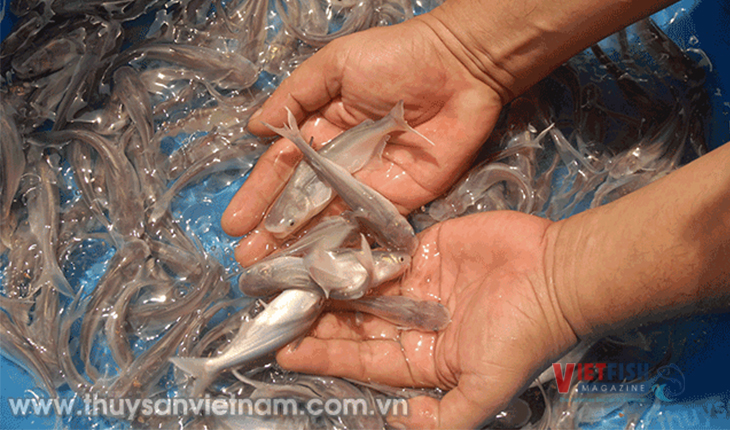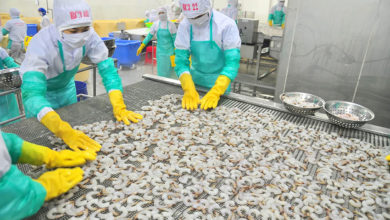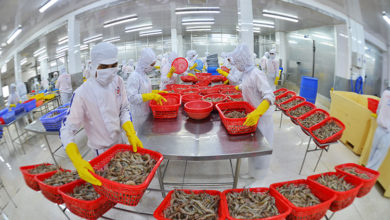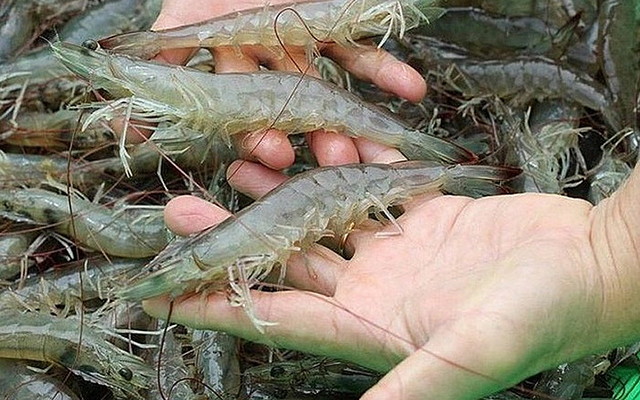Vietnamese seafood exports face challenges in the U.S. market
The U.S. recently issued a preliminary decision stating that Vietnam’s marine mammal conservation measures do not meet U.S. standards for 12 seafood harvesting methods. As a result, products like bigeye tuna, bluefin tuna, yellowfin tuna, striped tuna, swordfish, squid, grouper, mackerel, snapper, and crab may face challenges entering the U.S. market.
On March 19, 2025, in Hanoi, Deputy Minister of Agriculture and Environment Phung Duc Tien chaired a meeting to discuss the second-quarter tasks for the fisheries and fisheries surveillance sector.
Risk of seafood import ban in the U.S. by 2026
At the meeting, Nguyen Hoai Nam, Deputy Secretary-General of the Vietnam Association of Seafood Exporters and Producers (VASEP), reported that seafood exports in the first two months of 2025 reached over $1.4 billion, marking an 18% increase compared to the same period in 2024. Specifically, shrimp exports amounted to USD 532 million (up 26.4%), pangasius exports reached USD 221 million (down 6.2%), and tuna exports totaled USD 126.481 million (a slight decline of 3.5%). Exports to the U.S. accounted for USD 193 million, representing 13.8% of Vietnam’s total seafood export value during this period.
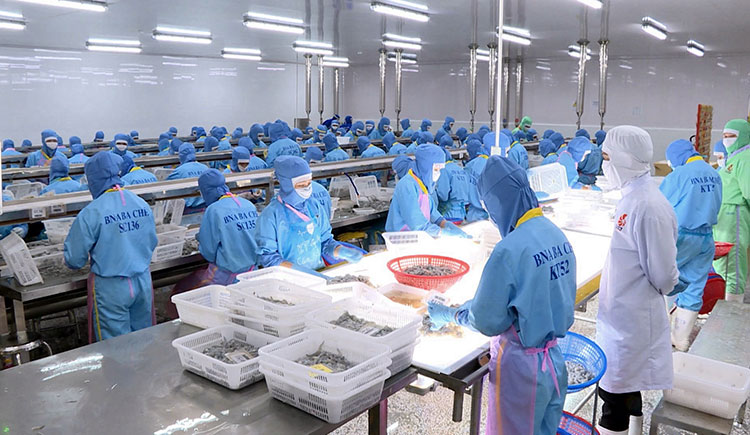
Nguyen Hoai Nam also noted that VASEP recently received a notification from the U.S. National Oceanic and Atmospheric Administration (NOAA) under the U.S. Department of Commerce regarding the enforcement of the Marine Mammal Protection Act (MMPA). This ruling will directly impact Vietnam’s seafood exports to the U.S. in the near future.
According to NOAA’s preliminary ruling, Vietnam’s marine mammal management and conservation measures are not considered equivalent to U.S. standards for 12 fishing practices, including gillnetting, purse seining, trawling, and longlining. Affected seafood products include bigeye, bluefin, yellowfin, and striped tuna, swordfish, squid, grouper, mackerel, snapper, and crab.
Furthermore, the U.S. plans to expand its Seafood Import Monitoring Program (SIMP), requiring additional traceability information from importers. This will increase compliance costs for Vietnamese seafood exporters.
NOAA’s decision stems from the lack of sufficient assurance that Vietnam has implemented effective management and monitoring measures to mitigate unintentional marine mammal bycatch and ensure compliance with U.S. regulations. The U.S. assessment indicates that Vietnam has only proposed certain monitoring activities but has not yet established them as formal regulations.
“NOAA has requested Vietnam to urgently provide evidence and an updated management plan for seafood harvesting practices to align with U.S. regulations before April 1, 2025. The final conclusion will be announced before November 30, 2025. If seafood products originating from these non-equivalent harvesting practices do not meet U.S. standards, they will be banned from entering the U.S. starting January 1, 2026,” said Nguyen Hoai Nam.
He proposed that the Ministry of Agriculture and Environment establish a dedicated task force, led by the ministry and involving the Ministry of Foreign Affairs and the Ministry of Industry and Trade, to review and register equivalency for Vietnam’s seafood harvesting methods. This task force should develop and commit to a comprehensive regulatory and management framework for marine mammal conservation and ensure timely submission of required information to the U.S. within March 2025. He also urged the ministry to coordinate with the Ministry of Foreign Affairs and the Vietnamese Embassy in the U.S. to formally request an extension of the deadline beyond April 1, 2025.
“Based on past experience in similar cases with the U.S., I recommend that the Ministry of Agriculture and Environment report to the government and, in collaboration with the Ministry of Foreign Affairs, hire a reliable U.S. consultant, preferably a retired expert from NOAA, to provide guidance and support for meeting the requirements. The cost for this expert consultation should be covered by the Vietnamese government…”
VFM



